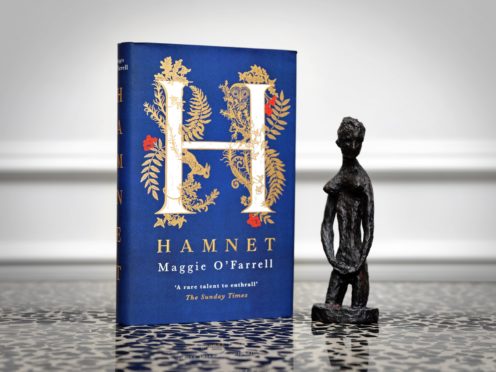A novel which set out to correct the “barefaced misogyny” in portrayals of Shakespeare’s wife has scooped the Women’s Prize for Fiction.
Maggie O’Farrell, 48, has been crowned winner of the 2020 award for her eighth novel Hamnet.
Contenders included Bernardine Evaristo’s Booker Prize-winner Girl, Woman, Other and acclaimed bestseller, The Mirror And The Light by Hilary Mantel.

Hamnet, set in 16th century Stratford-upon-Avon, was originally planned as a book about father and son.
Shakespeare wrote his tragedy Hamlet just a few years after the death of his only son, from the plague, aged 11.
But O’Farrell changed course after discovering that Shakespeare’s wife, Anne Hathaway, had been maligned by history.
Hathaway, who was older than the Bard and married him while pregnant, has been depicted by “scholars, novelists and screenwriters” as “an illiterate peasant” who Shakespeare “ran away to London to get away from”, the British author said.
“I was outraged on behalf of the woman we know as Anne Hathaway, because I feel that she has been treated with such sort of hostility, just barefaced misogyny,” the novelist told the PA news agency.
There is nothing to back up the popular depiction but there is evidence “that Shakespeare did really love her,” she said.
O’Farrell, who wins a £30,000 prize, said it was “very intimidating” writing about the “greatest writer that ever lived” and she initially stopped after a couple of attempts.
“It’s part of the reason why I don’t name him in the book,” she said, “he’s always the father or the husband.”
She began writing about the plague and imagining it arriving in England before the pandemic.
“I certainly didn’t see that coming. None of us did,” she said of the parallels.
Martha Lane Fox, Lastminute.com co-founder and chairwoman of the judges, said: “Hamnet, while set long ago, like all truly great novels expresses something profound about the human experience that seems both extraordinarily current and at the same time, enduring.”
Other books on the shortlist for the prize, now in its 25th year, were Dominicana by Angie Cruz, A Thousand Ships by Natalie Haynes, and Weather by Jenny Offill.
